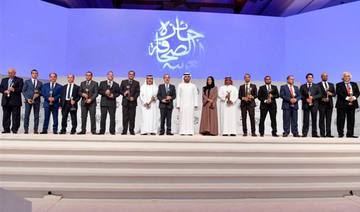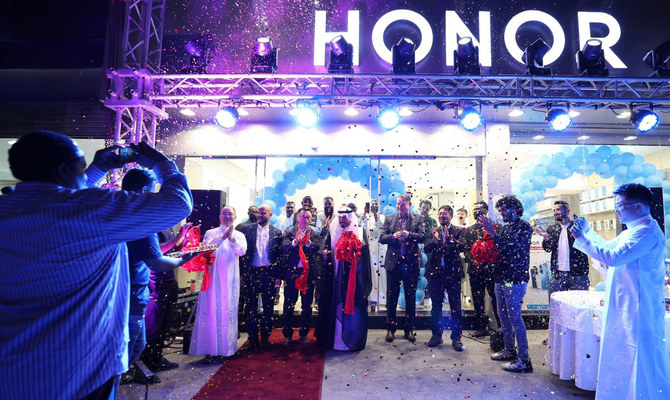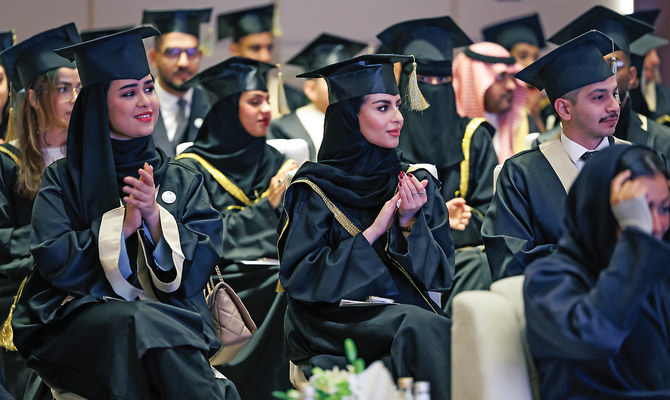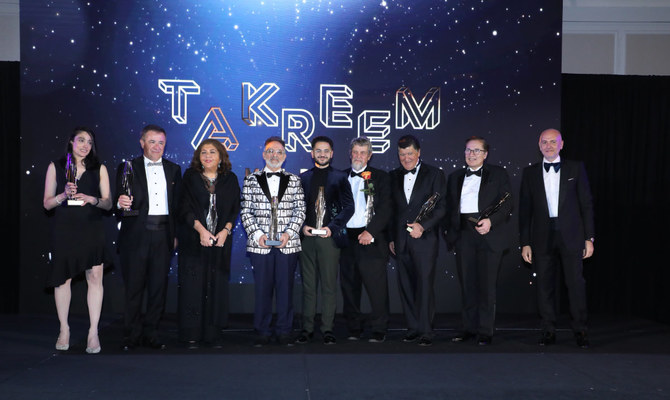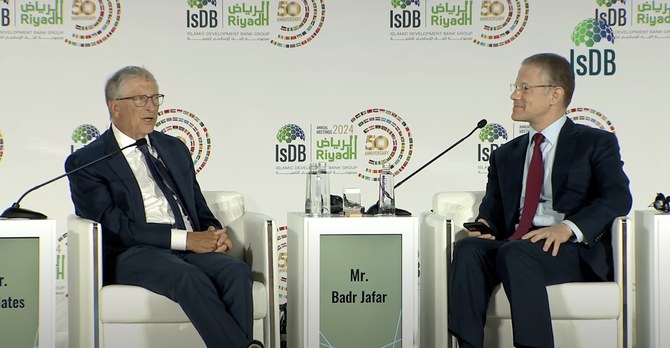The Islamic Development Bank hosted a special philanthropy forum at their annual meeting in Riyadh, in collaboration with the King Salman Humanitarian Aid and Relief Center, titled “Harnessing Philanthropy for Development: The Road Less Traveled.” The high-profile event brought together global philanthropic and business leaders to explore the untapped potential of philanthropic capital in accelerating development and humanitarian efforts.
The forum featured prominent figures in the philanthropy, development and humanitarian aid fields, including Dr. Muhammad Al-Jasser, president of the Islamic Development Bank; Dr. Abdullah Abdulaziz Al-Rabeeah, supervisor general of King Salman Humanitarian Aid and Relief Center; Princess Nouf bint Muhammad bin Abdullah, CEO of the King Khalid Foundation; Bill Gates, co-chair of the Bill and Melinda Gates Foundation; Badr Jafar, CEO of Crescent Enterprises and special envoy for business and philanthropy; Sulaiman Abdulaziz Azzabin, CEO of King Abdullah Humanitarian Foundation; Stanlake Samkange, executive director of the World Food Program; Danah Dajani, senior vice president at Abdulla Al-Ghurair Foundation; and Naila Farouky, CEO of the Arab Foundations Forum.
The forum began with a plenary conversation between Gates and Jafar, shedding light on Gate’s philanthropic journey and unwavering commitment to global health. The discussion also highlighted the evolving landscape of giving in the MENA region, the potential for greater collaboration between philanthropy and development banks, as well as new challenges and opportunities such as climate change and the advent of artificial intelligence.
Highlighting a transformative visit to Africa in 1993, Gates described how it exposed him to the devastating realities of extreme poverty and the high rates of preventable diseases, a major contributor to child mortality. Gates shared that in 2000, when the Bill and Melinda Gates Foundation was launched, a staggering 10 million children worldwide died before the age of five. Through their focused efforts on malaria, polio, and nutrition, the foundation has demonstrably halved that number and aims to reduce childhood mortality by a further 50 percent in the coming decades.
“I’m optimistic and see possibilities. We are making progress, the human condition today is better than ever before, life expectancy is longer, more children survive past the age of five and the opportunities to take innovation, which is accelerating, and apply it to reduce inequality, has never been so great. I believe it’s not just an emotional state, but it’s factual. We can drive progress and we have made progress,” Gates said.
Climate change took center stage as the conversation continued. Jafar, having chaired the inaugural COP28 Business and Philanthropy Climate Forum, emphasized the importance of increased cross-sectoral collaboration for climate and nature action, commenting: “We’re four months since COP 28 UAE and the historic UAE Consensus. The ‘whole of society’ approach that was the vision of Dr. Sultan Al-Jaber, saw the most inclusive climate gathering ever, bringing together geographically diverse and sectorally diverse stakeholders. The groundbreaking results reinforced the fact that we absolutely need the authentic engagement of business and philanthropy in the climate action agenda if we are to move from pledges and announcements to action and implementation.”
Gates responded: “I think that the COP meeting significantly exceeded my expectations. Not only was it hosted very well, but also the spirit that the businesses coming into it showed, as well as the philanthropists, was very impressive to me. What we saw was a mixing of small innovative companies who have new climate ideas … able to meet with the big companies.”
Building on the borderless impact of philanthropy, the conversation shifted to the evolving landscape and trends of giving in the Middle East and Africa. Jafar said: “Philanthropy is a $2 trillion per year sector, and I believe that in the Gulf region we’re on the cusp of a transformation of philanthropic practice to more strategic giving that is impact driven and is evidence based. This is due to a number of factors, not least the confluence of technology with the more hands-on expectations by the next generation and more focus on transparency and accountability.”
The discussion also touched on how innovative partnerships between philanthropic organizations and multi-development banks can amplify the focus and impact of these efforts. Reflecting on the power of collaboration, Gates emphasized the importance of renewing his foundation’s long-standing partnership with the Islamic Development Bank, along with other philanthropic actors across the region.
Making the announcement for the Live and Livelihoods Fund, Gates said: “All of our greatest successes have come through partnerships. We have a number of things where we fund research and development, like for breakthrough vaccines, where we’re able to operate on our own because we have such deep expertise and the cost to do that. But that’s more of an exception […] and that’s why this week is a huge milestone.”
Addressing future philanthropy trends, Gates, who pioneered various technological advancements, said that by strategically allocating resources toward the development of technologies like AI and blockchain for social good, philanthropists can unlock a new wave of impactful giving.
“I cannot overstate the impact that AI is going to have on every field of human endeavor. Whether it’s discovering new drugs for health care intervention, delivering medical advice or giving every kid a personal tutor that talks to them in their language, and not only understands the subject area, but also understands their motivation and how to keep them engaged,” Gates said.
The philanthropy forum served as a platform for fostering collaboration and innovation in development philanthropy, generating valuable insights and recommendations for strengthening the role of philanthropy in achieving sustainable development goals.




